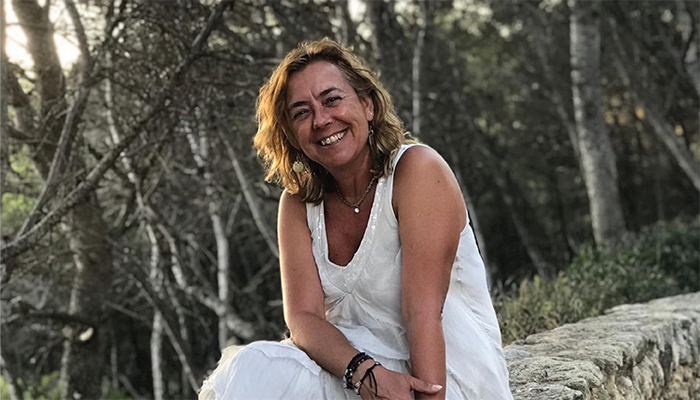Did you always want to be a scientist?
I was curious, but I wouldn’t say I always wanted to be a scientist. I believe my passion for science and research started in the last year of my graduate studies, when I enrolled in the analytical chemistry department of the Institut Quimic de Sarriá (now Ramón Llull University, in Barcelona, Spain). At that time, I had extraordinary professors and supervisors who were able to transmit their passion for knowledge and who made me realize all the opportunities analytical chemistry was able to offer. At that point, I just fell in love with science.
What attracted you to analytical science – and food analysis in particular?
What attracted me most was the potential impact on society’s well being. Food analysis has an important relationship with sustainability that can help improve our lives, our cities, and our planet – and that’s something I am passionate about. I’m motivated by the potential to help others.
Were there any unexpected turns during your career?
I guess there are always unexpected turns in a professional career, but you must learn from all of them – and I wouldn’t be who I am today without having endured challenges and difficult decisions. For example, I remember when I was trying to become a scientist in my organization (CSIC, National Research Council of Spain); at that time (the late 1990s), Spain was not investing in science, so the competition for positions was very strong. After five years as a postdoc (two in the US and three back in Spain), my contract finished and I had to take a university position with no permanent contract. I was already 35 years old at the time. It was difficult, but I was able to manage. Fortunately, I was successful in the end – and became more self-confident as a result.

What achievement brings you the most pride?
I believe I have been able to combine my knowledge in analytical chemistry and chemical engineering for the benefit of society – and I am proud of that. I was able to break all barriers between the two disciplines, which allowed me to truly think “in green” and apply knowledge bidirectionally.
In the past, you’ve mentioned Karin Markides and Alejandro Cifuentes as inspirational leaders – what lessons did they teach you?
Karin Markides for me was a model of a strong women able to lead two different (and important) laboratories in two places so far apart (Utah, USA, and Uppsala, Sweden). In the 1990s, this wasn’t so common. I remember her traveling every two weeks back and forth and being able to significantly contribute to some new and exciting analytical developments in chromatography and mass spectrometry in both labs. Importantly, she was also able to run a family and even had time for friendly dinners at her place!
Alejandro Cifuentes is a model of a self-made leader. I remember him starting a lab from zero and, after few years, becoming one of the most important names in the -omics field. He taught me to never give up, to be confident with my work, to follow an idea (or a dream) and to pursue it with hard work and strong commitment. He opened his lab to me and, from that moment, we became a really strong team – based upon mutual respect, common professional interests, and engaging scientific discussions!
How can we attract more talent to analytical science?
We need to make society aware of the role of analytical chemistry in all aspects of science. We can do that by giving more publicity to scientific papers involving analytical chemistry that have helped solve important issues for society. Perhaps we can use social media more effectively to send the message that there are few important advances in science that aren’t connected to advances in analytical chemistry. By better advertising the field, we should attract more talented researchers.
In 10 years time, when you look back on the progress made in food analysis, what do you hope you will say?`
Unfortunately, I will probably say that we had the chance to help our world achieve goal 2 of the 17 Sustainable Development Goals (Zero Hunger), but we weren’t able to do it. We needed to do more, but, faced with the scale of the challenge, we quit fighting. I hope that I’m wrong. When I look back in 10 years’ time, I’d love to say that we made it – we have safer food production, fewer undernourished people, more people accessing healthy food, more food able to prevent diseases, greater equality…
What is your personal mission for the next 10 years?
My personal mission is to keep training young scientists from underdeveloped countries – either in our foodomics laboratory or in their countries of origin. Also, I want to train and enlighten decision-makers in these countries, including governments, communities, companies, and so on. Without a doubt, this is my personal wish and mission for the coming years.
What advice can you offer those following in your footsteps?
Work hard, keep your mind open to new inputs, even from different fields. Be brave and try to think out of the box. Do not forget that you owe a debt to the world and to society, so, work to build a better world for humanity.
Credit: Image supplied by interviewee




